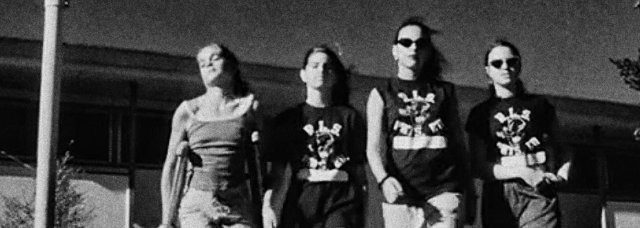Lick the Star (1998) – dir. Sofia Coppola
Say it backwards!
Solutor Drunk Napoleon observed recently that nepotism is an accusation that gets batted mostly only when the work isn’t up to snuff. Sofia Coppola is an interesting case study, having served as evidence for that statement from both sides. The career of Coppola the actress began and for most purposes ended in roles of increasing size for her legendary father, Francis Ford Coppola, cresting and crashing when she played the daughter of Michael Corleone in The Godfather Part III. Critics savaged her performance and there was no place to hide from the skepticism that her casting could have been based on anything other than being the progeny of a director who had long enjoyed unfettered control of his projects.
The career of Coppola the director begins here, with a Heathers-esque tale of the rise and fall of a high school clique leader. It has the hallmarks of a Coppola production already – the alternative and alluring soundtrack, the knowing use of “cool” tableaus undercut by that same knowingness, themes of alienation and isolation. It’s a Hollywood family affair, with the names Cassavetes and Schwartzman in the cast list (plus Peter Bogdonavich himself as the principal). It’s also an uncommonly well-constructed student film that’s easy to believe is an early work of a future auteur. The mind does, however, boggle a bit that this was made the same year production began on her assured and classic debut feature The Virgin Suicides.
That film and her follow up Lost in Translation, which would earn her an Oscar win for screenplay and a nomination for direction, quickly cemented Coppola’s place as an auteur filmmaker. And while there wasn’t any doubt how she got her start, bringing up her father in a critique of her work would describe a now distant step in a formidable filmography. One of the continually impressive aspects of her career is how true it’s remained to her worldview and experience – often concerned with the more privileged sectors of society – without seeming alien to the general viewer. Or at least no more alien than it seems to Coppola.
In interviews, Coppola relates a story about dealing with the intimidating presence of her father when he visited the set of Virgin Suicides, saying “when you direct is the only time you get to have the world exactly how you want it. My movies are very close to what I set out to do.” It helps to get a hard start, no doubt about it. But forging one’s own path can be a challenge wherever you start from.

